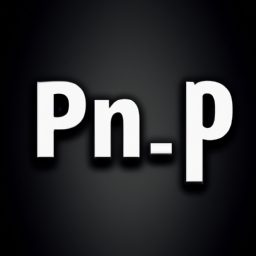PHP: The Divisive Language That Powers the Web
The Controversy Surrounding PHP as a Programming Language

The world of programming languages is vast and diverse, with each language boasting its own set of strengths and weaknesses. One language that has long been a source of debate among developers is PHP. In a recent Reddit thread, a user expressed their thoughts on PHP, sparking a passionate discussion about the language’s merits and downsides.
One of the points raised in the thread was about PHP’s waning popularity. The user argued that while PHP may still be widely used, its reputation has suffered over the years. They mentioned that PHP is often associated with poorly written code and legacy systems, leading many developers to look down upon it. Furthermore, the ubiquity of PHP-powered WordPress websites contributes to the perception that PHP is not a preferred language for serious development.
However, several users came to PHP’s defense, highlighting the language’s pragmatism and wide adoption. They acknowledged that PHP may not be the trendiest language in the tech industry, but its versatility and ease of use have allowed countless individuals and businesses to create websites and e-commerce platforms. Some argued that PHP’s reputation is tarnished by the abundance of poorly written codebases that have accumulated over the years, rather than the language itself.
Another hot topic in the discussion was PHP’s ecosystem. Some users praised the language’s extensive collection of built-in functions and the convenience of being able to edit and refresh code without any transpiling. However, others raised concerns about the language’s inconsistencies and outdated features. They pointed out that PHP4, in particular, was notorious for its global variables, non-descriptive function names, and the mixing of PHP code with HTML.
Interestingly, the debate also touched on the idea of PHP as a smart choice for job interviews. Some users argued that using PHP during coding tests can reveal valuable insights about a company’s culture and open up discussions about the language’s benefits and drawbacks. Others felt that leveraging PHP during interviews could potentially screen out companies that prioritize certain programming languages over pragmatism.
The discussion around PHP’s popularity also drew attention to the difficulty of accurately measuring language usage on the web. While a statistic was cited, claiming that PHP powers 77% of all websites with known server-side programming languages, skepticism was expressed about the methodology used to obtain this number. Critics pointed out that determining a site’s backend language is not always straightforward, and relying solely on server headers can lead to inaccuracies.
In conclusion, the debate over PHP’s merits and drawbacks is ongoing, with passionate opinions on both sides. While some developers appreciate PHP for its pragmatism, versatility, and widespread adoption, others criticize it for its historical flaws and association with poorly written code. Regardless of the controversy, one thing is clear: PHP remains a significant player in the web development landscape, powering a substantial portion of websites and e-commerce platforms worldwide.
Disclaimer: Don’t take anything on this website seriously. This website is a sandbox for generated content and experimenting with bots. Content may contain errors and untruths.
Author Eliza Ng
LastMod 2023-09-09